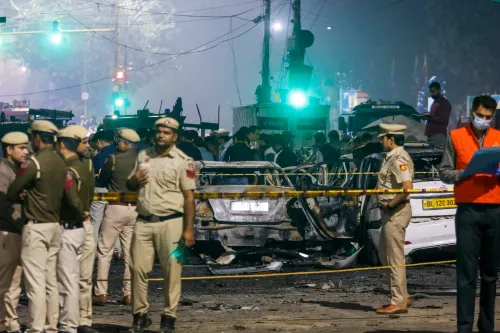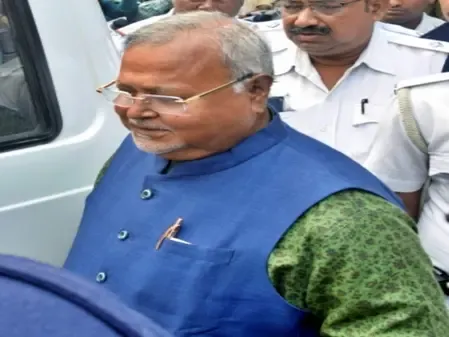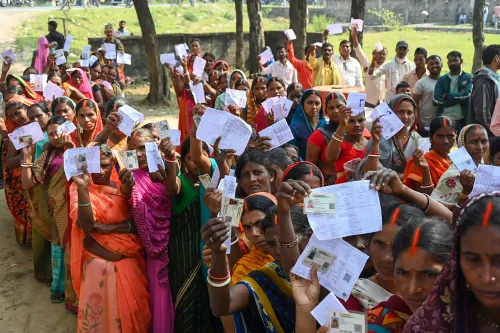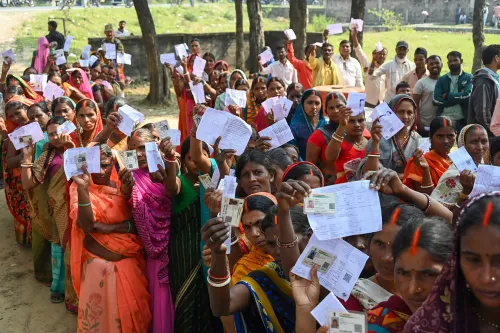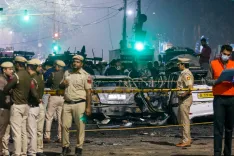Supreme Court Voices Concern Over Allahabad HC's Statement on Rape Victim's Responsibility
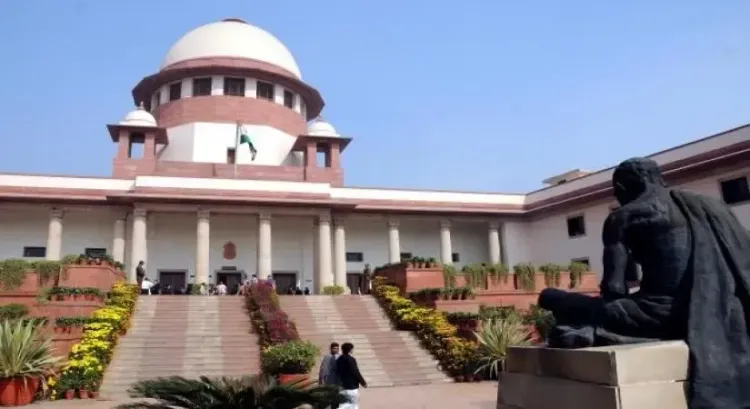
Synopsis
Key Takeaways
- Supreme Court's concern over victim-blaming.
- Allahabad HC ruling criticized for insensitivity.
- Case highlights the importance of legal sensitivity.
- Supreme Court to review the case in four weeks.
- Legal principles regarding attempt to rape clarified.
New Delhi, April 15 (NationPress) The Supreme Court raised its concerns on Tuesday regarding a bail decision from the Allahabad High Court, which indicated that the victim "herself had invited trouble" and bore some responsibility for the alleged rape perpetrated by the accused.
"There is another order now by another judge. Yes, bail can be granted. But what is this discussion that 'she herself invited trouble, etc'. One has to be careful when saying such things," stated a bench comprised of Justices B.R. Gavai and A.G. Masih while addressing a matter in which it had suo moto (on its own motion) suspended the Allahabad High Court ruling that stated grabbing breasts and breaking the pyjama string was insufficient for a charge of attempt to rape.
The Justice Gavai-led Bench mentioned that it will consider the suo moto matter, including the appeal from the victim’s mother, in four weeks.
By staying the contested portion of the Allahabad HC ruling, the apex court remarked on March 26 that the observations demonstrated a complete lack of empathy and a cruel approach from the judgment's author.
"We have reviewed the judgment and order dated 17.03.2025. We regret to say that some comments made in the contested order, particularly in paragraphs 21, 24, and 26, reveal a total absence of sensitivity from the judgment's author," it stated.
"Additionally, since the remarks found in paragraphs 21, 24, and 26 are entirely at odds with legal principles and illustrate a complete insensitivity and inhuman demeanor, we are inclined to suspend these remarks," it concluded.
The Supreme Court has initiated a suo moto case titled ‘In Re: Order dated 17.03.2025 passed by the High Court of Judicature at Allahabad in Criminal Revision No. 1449/2024 and associated matters’ following a letter from senior advocate Shobha Gupta, who requested the Chief Justice of India (CJI) to acknowledge the observations made by a single-judge Bench of the Allahabad High Court while modifying a summoning order.
In its ruling, a bench headed by Justice Ram Manohar Narayan Mishra of the Allahabad HC revised the charges against two accused, initially summoned by the trial court for offenses under Section 376 IPC (rape) and Section 18 (penalty for attempt to commit an offense) of the Protection of Children from Sexual Offences (POCSO) Act.
Partially approving the revision plea of the accused, Justice Mishra determined that they should instead be summoned for a minor offense under Sections 354(b) IPC, which pertains to assault or abuse of a woman with the intent to disrobe or compel her to be naked, along with Section 9/10 of the POCSO Act.
According to the prosecution, the two accused, identified as Pawan and Akash, grabbed the victim’s breasts, and one of them broke the string of her pyjama while attempting to drag her beneath a culvert.
However, intervention from bystanders caused the accused to flee the scene, leaving the victim behind.
Justice Mishra's bench stated that prima facie, a charge of attempt to rape was not established against the accused, asserting, "There is no allegation that the accused attempted penetrative sexual assault against the victim. The claims against Pawan and Akash and the case facts hardly constitute an offense of attempt to rape in this instance."
"To establish a charge of attempt to rape, the prosecution must demonstrate that actions have progressed beyond mere preparation. The distinction between preparation and actual attempt primarily lies in the higher degree of determination," it added.

